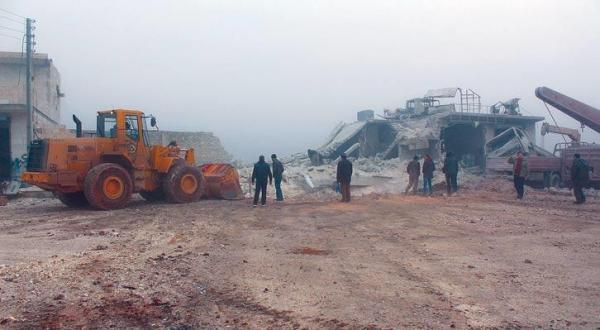Controversy has recently been headlining the situation for Jabhat Fateh al-Sham forces in northwestern Syria, especially after authority overwhelmingly ordering a merger among all armed factions. Uniting all extremist factions raised fears among international watchdogs regarding the durability of the Russia-Turkey brokered ceasefire.
Formerly known as,al-Nusra Front, Jabhat Fateh al-Sham takes up large swathes of territory in Northwestern Syria.
The fatwa ordered to bring together all factions have paradoxically caused divisions among groups. Labib Nahas, Ahrar al-Sham’s foreign policy expert, described the issued integration fatwa as a multilateral insurgency led by evoking religion-styled fatwas.
Army of Islam forces, the Levant Hawks, and Levant Corps sounded their objection to the fatwa. The Noureddine Zanki faction renounced Hossam al-Atrash, one of its religious authority figures, for signing the fatwa.
However, Jabhat Fateh al-Sham confirmed that it will be upholding the agreement among armed factions, in addition to welcoming all groups willing to join the new entity. The extremist group also said that the new force will be led by Ahrar al-Sham.
The plan to amalgamate extremist Islamic factions with moderate ones operating in north Syria has relatively failed with Ahrar al-Sham forces and the Noureddine Zanki movement rolling back from the initiative. A new entity would be birthed by bringing together 13 factions of which a majority is composed of extremist factions.
Reliable Syrian opposition sources had told Asharq al-Awsat that regional and international pressures were exerted to hinder the integration, saying that joining efforts with Jabhat Fateh al-Sham will bring about the indictment of all moderate groups with terrorism.
On the other hand, terror group ISIS claimed responsibility for a suicide bomb attack in Syria’s coastal city of Tartous two days ago. The Syrian regime had reported the death of two security officers killed by the attack
